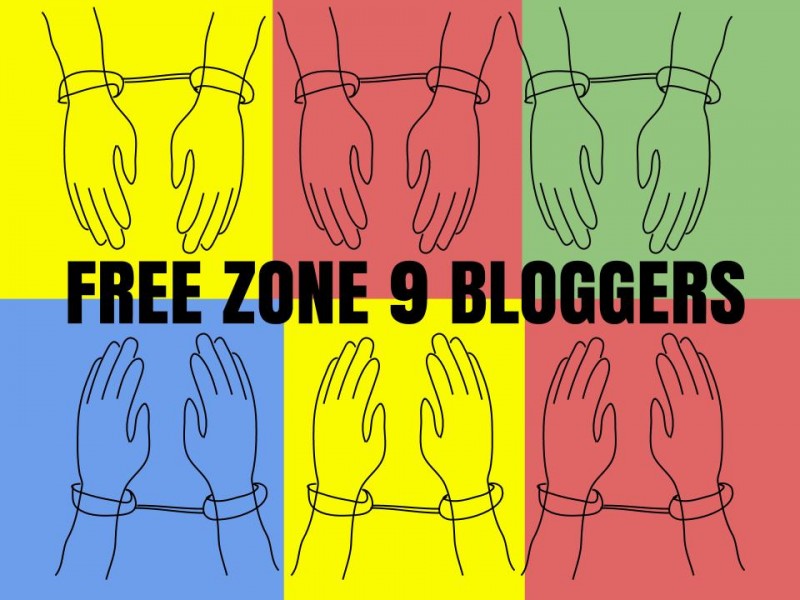
On April 25 and 26th, the Ethiopian government arrested nine writers, six of whom are members of Zone 9. In Addis Ababa’s notorious Kaliti prison, Zone 9 is where political prisoners end up. Reeyot Alemu has been there for over 1000 days, for the crime of having written essays and articles critical of the government.
Now, members of Zone 9 sit in Zone 9.
For over 80 days, the nine writers were held without any charges, or better, under “informal accusations”. This past week, they were hastily charged with various forms of terrorism, under the anti-terrorism law passed in 2009.
Freelance journalist Edom Kassaye and blogger Mahlet Fantahun will join Reeyot Alemu in the women’s section of Kaliti. A third woman, Soliana Shimeles, was also charged with terrorism, but she’s outside of the country.
Almost forty years ago, in the throes of the anti-apartheid struggle, Nadine Gordimer asked, “What is a writer’s freedom?” Her answer, in part, was: “A writer needs all … kinds of freedom, built on the basic one of freedom from censorship. He does not ask for shelter from living, but for exposure to it without possibility of evasion. He is fiercely engaged with life on his own terms, and ought to be left to it, if anything is to come of the struggle. Any government, any society – any vision of a future society – that has respect for its writers must set them as free as possible to write in their own various ways, in their own choices of form and language, and according to their own discovery of truth.”
The Zone 9 writers’ slogan, and rallying cry, is “We blog because we care!” What do the writers care about? The truth. The end of censorship, lies, and suppression. The right to write. This week, Ethiopia charged ten writers with the terrorist act of writing, just writing. The rest is fog and mirrors.
In a tribute this week to Nadine Gordimer, Ngugi wa Thiong’o – who knows something about the combination of writing, truth, censorship, lies, imprisonment and exile – wrote:
“Dear Nadine Your Name is Hope
You found broken hearts
You put them back together with words
From a pen that flowed ink instead of blood.”
The imprisonment of the nine writers, and charges against ten, is part of an Ethiopian story, as the name “Zone 9” suggests. At the same time, it’s part of a global assault against writing, all writing, under the guise of anti-terrorism. What was once particular to Gordimer’s South Africa or Ngugi’s Kenya or Paolo Freire’s Brazil or Angela Davis’ United States is now a coherent global regime. In that context, thinking of the ten writers charged with terrorism, thinking of Reeyot Alemu and so many other imprisoned writers, it’s time to ask, “Can pens still flow ink instead of blood?” Whose name today is hope?
(Image Credit: GlobalVoicesOnline.org)